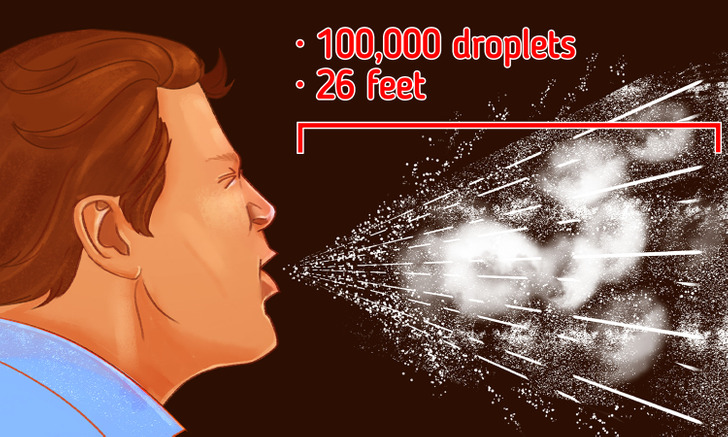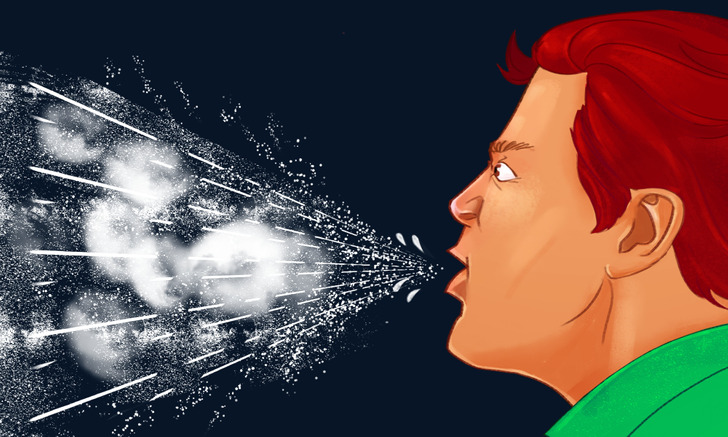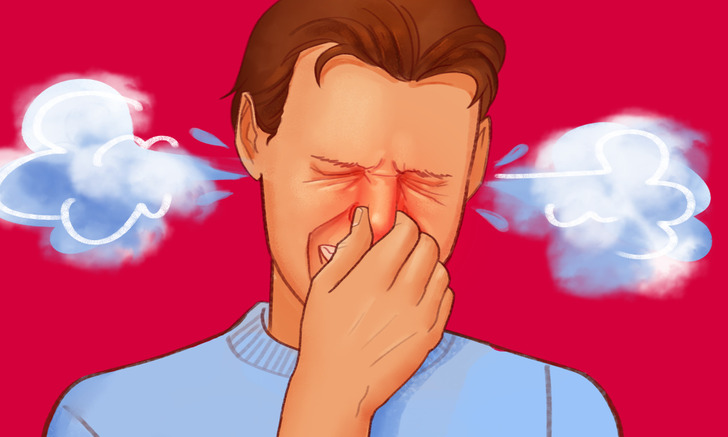The Answer to Whether You Can Sneeze With Your Eyes Open
Sneezing can sometimes be a hassle, for example, if you sneeze while doing your eye makeup. At this moment, it would be more convenient to not close your eyes, but many people do it involuntarily.
5-Minute Crafts decided to figure out why we sneeze and whether we can do it with our eyes open.
What is sneezing?

Sneezing is the coordinated effort of various parts of the body, which leads to a sharp expulsion of air through the nose and mouth. This reaction occurs as a response to physical stimuli affecting the nasal mucosa, and helps to clear the airways. Therefore, sneezing is an important part of the body’s immune process.
When you need to sneeze, the brain sends signals for you to close your eyes, throat, and mouth tightly. After that, the chest muscles contract vigorously, then the throat muscles relax just as rapidly, and the air rapidly leaves the lungs through the mouth and nose, carrying droplets of saliva and mucus with it.
The amount of particles that enter the air as a result of a sneeze can reach 100,000 droplets, developing speeds up to 100 mph and covering a distance of up to 26 feet.
The longest sneezing fit ever recorded happened in 1983 and lasted for 976 days.
Can you sneeze with your eyes open?

Scientists say that it’s possible to sneeze with your eyes open, but most people close their eyes reflexively.
There is still no exact answer as to why sneezing triggers the blinking response. However, scientists suggest that this is how our body protects itself. When irritating particles get into the nose, the body tries to clear the airways, causing a sneeze. By closing the eyes, we prevent germs from getting into them.
Things that make us sneeze
- Irritating foreign particles
- Nerve irritation when plucking the eyebrows
- Allergy or cold
- Exercises that dry out the nose and mouth
- Reaction to sudden bright light
- Reaction to overeating
Some people only need to sneeze once, while others do it several times in a row. The sneezing continues until you get rid of the irritant in your nose.
Is it dangerous to stifle a sneeze?

Stifling a sneeze may seem appropriate sometimes. Negative consequences of this for the body are extremely rare and are considered exceptional.
However, doctors don’t recommend holding a sneeze in. After all, during a normal sneeze, a pressure of 4.6 mm Hg is produced, and when a sneeze is stifled, the pressure rises up to 176 mm Hg, and it has to go somewhere.
Here are some effects of a stifled sneeze that have been observed in medical practice or can potentially occur:
- Eardrum rupture
- Throat irritation
- Rupture of blood vessels
- Rib fracture
- Infections
- Cartilage fracture around the vocal box
- Pain in the neck
- Facial fractures
- Dizziness
- Air trapped under the skin
- Hernias
- Vision changes
- Aneurysm rupture